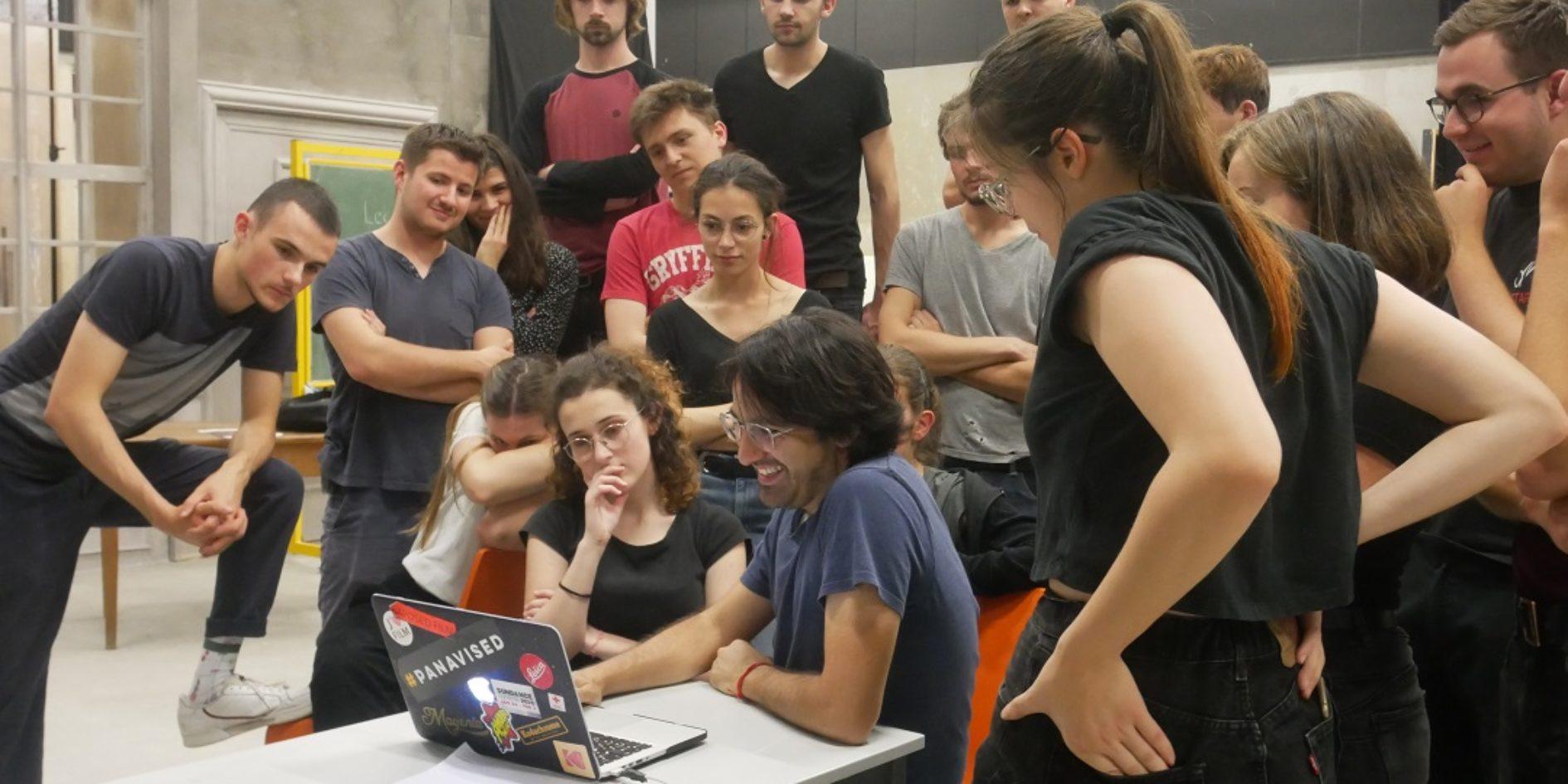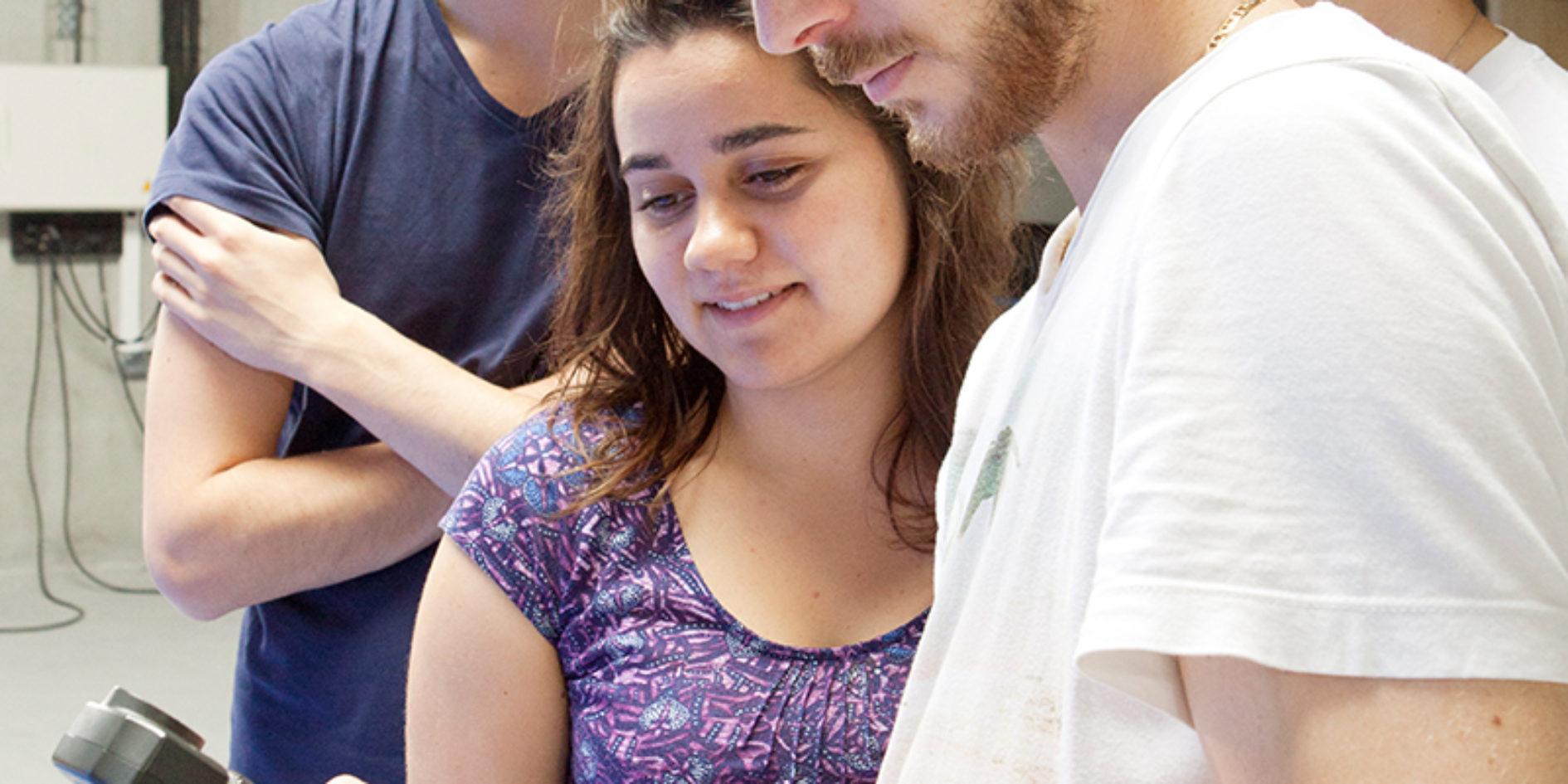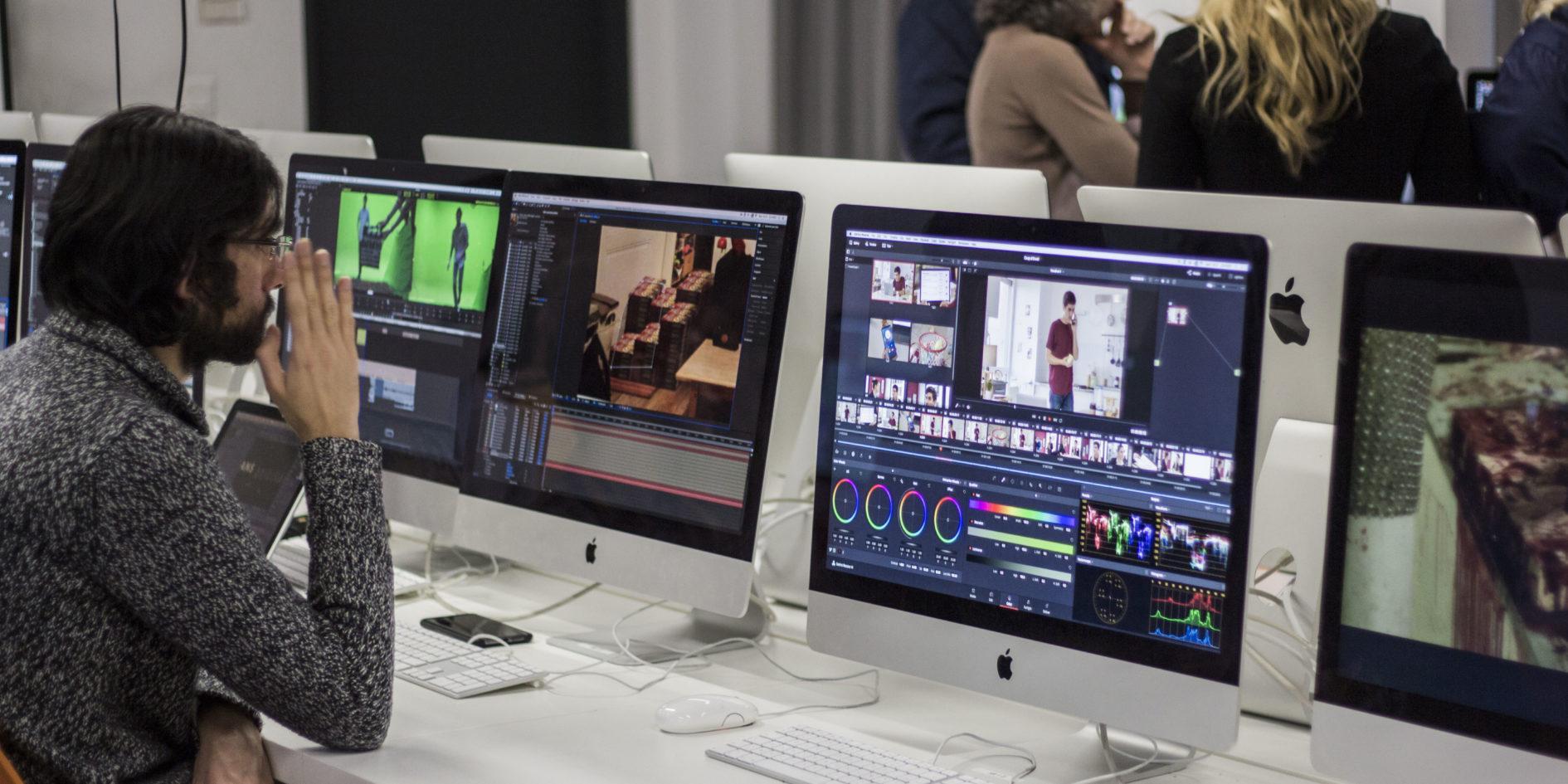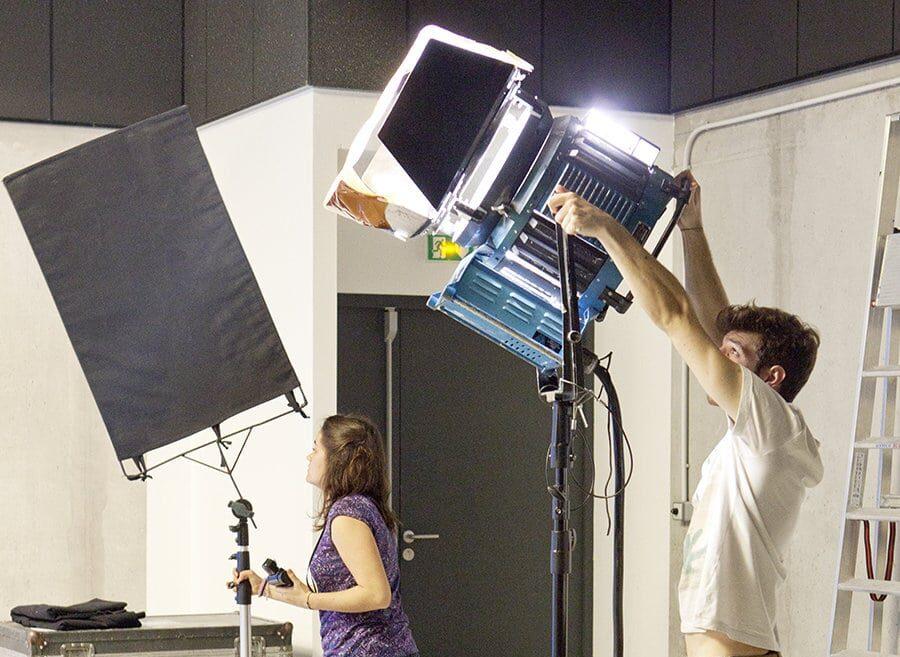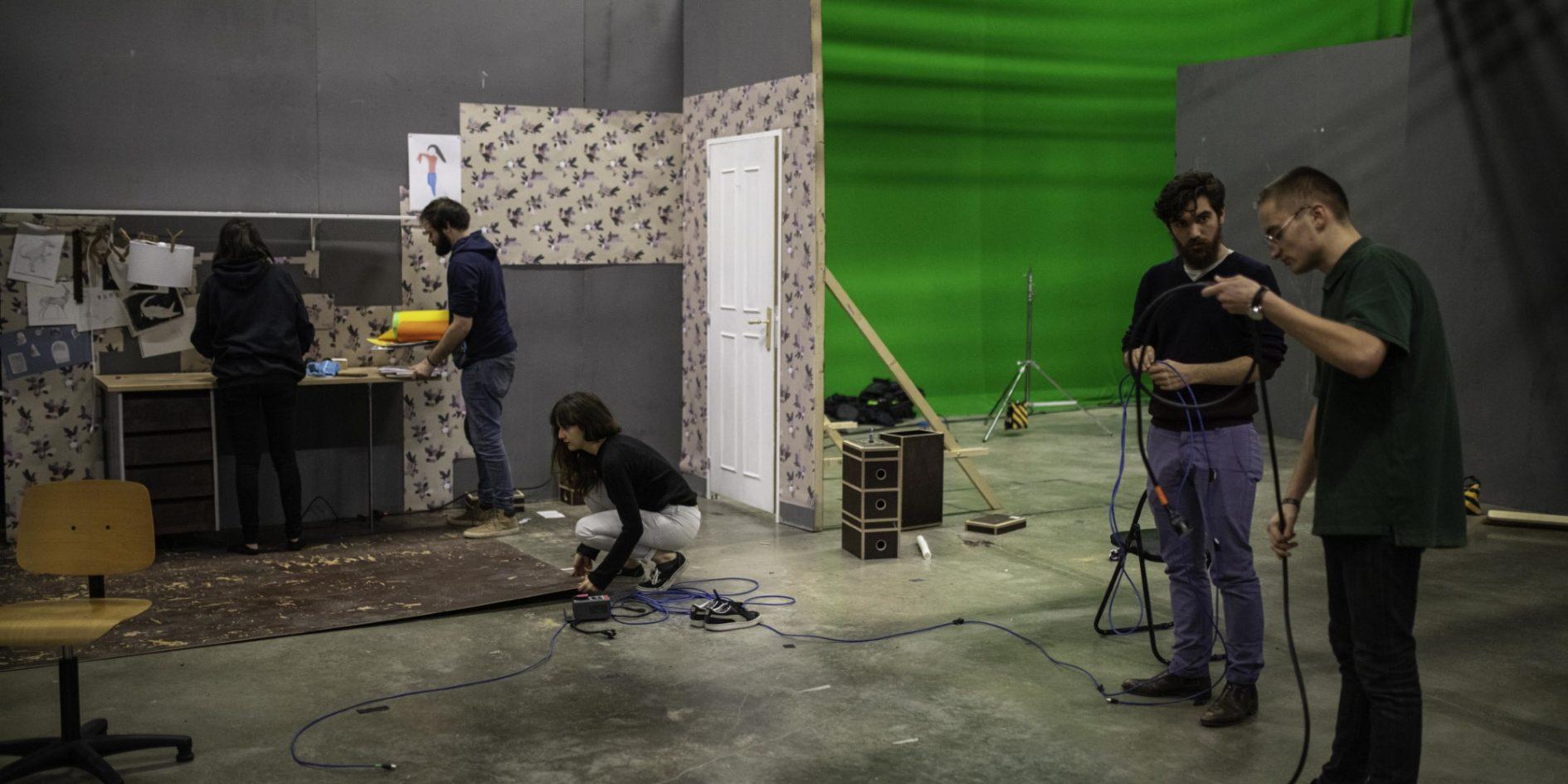Sound Effects Designer
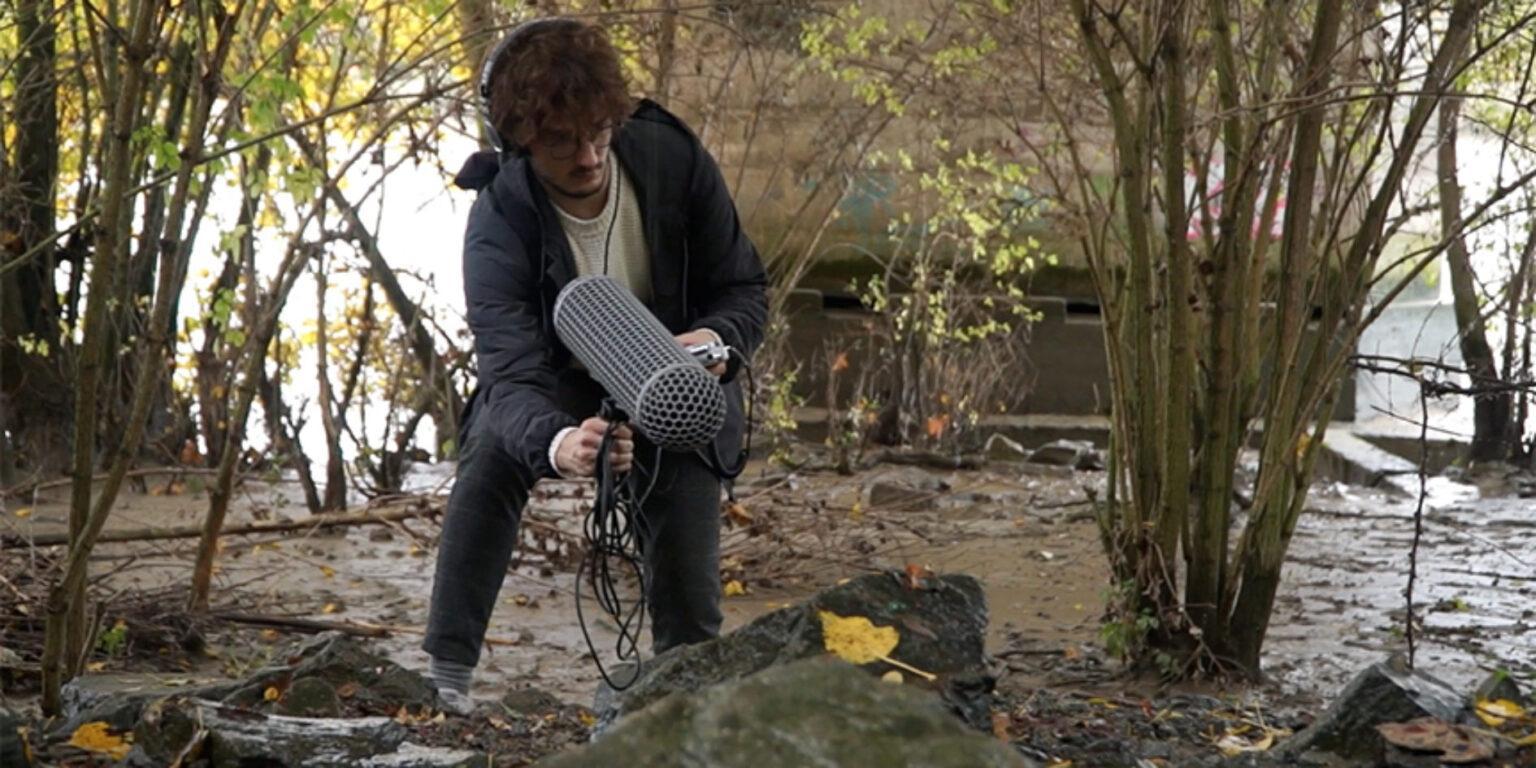
The sound effects engineer is responsible for all the sound effects in movies, series and other artistic productions.
He is accurate in all his missions.
This profession, which is specific to the audiovisual industry, does not require any special training. Here’s what you need to know about his skills, qualities, opportunities and remuneration.
The sound effects designer’s role and missions
His role : producing effects and sound environments
The role of the sound effects designer is to produce either mechanical or manual sound effects. This professional works on films, television series and television shows. He or she may also work for radio and even video games.
Footsteps, an explosion, a door slamming… All the sounds heard in audiovisual productions are processed and produced by the sound effects designer.
In order to produce these sounds, essential elements in a production, the sound effects designer uses a variety of techniques. He also uses props, which he uses in studio. His aim is to give credibility to a scene thanks to the sounds he creates. He can also have the opposite task, and use sounds to make a scene seem absurd, as in cartoons for example. He works under the director’s supervision.
He or she usually works with the director and the post-production manager. He or she also works with the sound designer, and sometimes with an assistant.
The role of this expert of “noise” is to identify and produce all the sounds necessary for the film or audiovisual production. He or she is responsible for the quality of the sounds he or she produces, which are intended to perfectly match the other sounds used in the production.
The missions of the sound effects designer
The sound effects designer’s main activities involve all aspects of sound effects in a production:
- Identifying and analyzing the sounds to be recreated, according to the director’s request, the production, the constraints, etc;
- Researching ways to create sound effects, with ingenuity, efficiency and realism. The sound effects we can hear in cinema are the result of high-precision work by sound effects designer;
- Creating sound effects in studio. After finding out how to make a sound, the sound effects designer works on producing the sound expected by the director. He uses a recording studio and audio software for this purpose.
The sound effects designer can also carry out specific and occasional missions. Some consist for example in making sound effects for radio programs.
Diplomas and training programs
There is no specific training in order to become a sound effects designer. However, it is strongly recommended to follow the training courses of the film industry to work as a sound effects designer.
The RNCP title “Audiovisual Director-Creator” (level 6 – equivalent to a Bac+3), is a training adapted to the film industry, allowing students to acquire the skills and knowledge needed to practice this activity.
It is also a job that you learn in the field, through observation and hard work: talent and experience will make the difference.
A good technique in the audio field is a real plus to enter this profession. Training programs in the audiovisual field is an excellent basis.
Internship as sound effects designer / assistant sound effects designer
It is also possible to do internships as a sound effects designer’s assistant. And this, in order to become familiar with this field and the techniques used.
During the internship, the student can learn how to master the audio software essential to the practice of this profession. Numerous professional and personal experiences in this field allow the student to improve his or her skills over time. And of course, to gain credibility on the job market.
Skills and required qualities
The sound effects designer’s qualities
Internship as sound effects designer / assistant sound effects designer
To work as a sound effects designer, you must have a perfect technical mastery of audio software. But beyond technical skills, several qualities are essential:
- a good ear,
- high concentration,
- great speed…
You also need to demonstrate a creative spirit and a highly developed artistic sense. Analytical and observational skills will be valuable qualities to become a sound effects designer, along with a good auditory memory.
Patience, resourcefulness, precision and imagination are ideal qualities for the job. The same goes for creativity, artistic sensitivity and adaptability.
The sound effects designer’s skills
Les compétences liées à cette activité portent aussi sur la capacité à exécuter des bruitages en parfaite synchronisation avec l’image. Le bruiteur doit pouvoir s’adapter aux lieux d’enregistrement, au matériel à disposition…
Bien entendu, des connaissances en équipements, en microphones et en logiciels permettent de placer précisément les micros. Et ainsi, d’obtenir le résultat sonore attendu.
Repérer la spatialisation d’un son pour une transcription gestuelle appropriée est également une qualité propre aux bruiteurs professionnels. Enfin, le bruiteur doit avoir un sens aigu de la rythmique et une gestuelle adaptée. Le tout, de façon à réaliser des effets sonores d’une grande précision.
Carrières et débouchés professionnels
The sound effects designer is usually a contracted professional, and the term of his intervention depends essentially on the project for which he is called upon.
The development of sound effects and pre-recorded sound libraries has created a certain amount of competition in the field of sound effects. Fortunately, sound effects designers are still very much in demand in the world of cinema.
Especially large productions are always on the lookout for renowned talents and sound effects designers, with sharp and very precise skills. It is precisely this kind of originality in sound effects that is much sought after by film directors and producers.
Career openings
In terms of development, the profession of sound effects designer offers some opportunities. For example, it is possible to create your own activity, and to open a post-synchro studio.
Experience and recognition in the film industry are a plus for such an ambitious entrepreneurial project. Starting a career as a sound effects designer can be difficult. Consequently, internships in post-synchronization or post-production studios, which can be great springboards, are highly recommended.
The sound effects designer’s salary
The sound effects designer earns a gross monthly salary of between 3.500 and 4.000€.
This salary may vary according to the missions, the status of the professional (occasional worker, salaried, self-employed) and his/her reputation.
Indeed, in the film industry, reputation and experience have a great impact on demand, and on the professionals’ salary expectations as well. As a freelancer at the head of his own post-synchronization studio, the sound effects designer can increase his remuneration, which in this case is based on the annual or monthly turnover.

